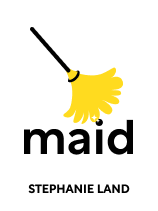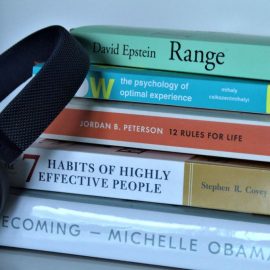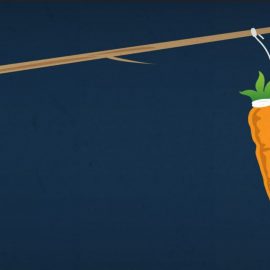

This article is an excerpt from the Shortform book guide to "Maid" by Stephanie Land. Shortform has the world's best summaries and analyses of books you should be reading.
Like this article? Sign up for a free trial here .
What are the best Maid quotes by Stephanie Land? How can these quotes make you think differently about motherhood and poverty?
Maid tells the inspirational story of Stephanie Land, a single mother who worked endlessly to support herself and her daughter through poverty. The book provides social commentary on the American work ethic and stereotypes about poor people.
Here’s a selection of Maid quotes with context and explanations.
Maid by Stephanie Land
Maid is Stephanie Land’s memoir of her struggle to make ends meet as a single mom by working as a housekeeper and relying on government assistance. Since Maid was published, it has been adapted into a popular, critically acclaimed Netflix miniseries.
Beyond being a personal narrative, Maid is also a broader social commentary on the American “pull yourself up by your bootstraps” mentality. Land does backbreaking labor under difficult conditions while caring for her daughter and studying to get a college degree—yet circumstances beyond her control keep her mired in poverty. From domestic abuse to flawed government policies, the obstacles that Land must overcome are overwhelming. By the end of the memoir, while she hasn’t yet fully escaped her situation, she has begun to make a better life for herself and her daughter. Below are the best Maid quotes by Land.
Best Maid Quotes
“Like I had been in the wrong for leaving a man who threatened me. I knew there were countless women out there in the same situation as I had been.”
Land lives with her boyfriend Jamie throughout her pregnancy and during the first seven months of her daughter, Mia’s, life. During this time, Jamie continues his rages, threats, and insults. He calls Land ugly, stupid, and crazy. Land no longer feels safe. She decides to move in with her father and his new family.
Land and Mia move in with Land’s dad. Land’s dad and his wife don’t have a lot of money and live in a mobile home, so having two extra people staying with them is a burden. After a few weeks, Land’s dad tells her that she needs to leave. He and his wife then fight about Land staying with them, and he physically abuses his wife. Land tries to tell her aunt and brother about the domestic violence, but her father has already told them that Land made the story up for attention and that she did the same with her story about Jamie. Land moves out.
“Single parenting isn’t just being the only one to take care of your kid. It’s not about being able to “tap out” for a break or tag team bath- and bedtime; those were the least of the difficulties I faced. I had a crushing amount of responsibility.”
Although Land’s relationship with Jamie was untenable, it did provide some financial stability. When Land lived with Jamie before getting pregnant, they were able to combine their incomes and save money on rent. After Land gave birth, she could stay home with Mia while Jamie continued to work.
Once Land and Jamie split up, however, Land is on her own. She receives a minimal amount of child support from Jamie, but she’s essentially the sole breadwinner for herself and her daughter, as well as the person responsible for Mia’s care and for obtaining any government assistance that will help them survive. This makes it harder to hold onto a working-class existence.
“Despite being wealthy and having the two story houses of our American dreams, the marbled sink bathrooms, the offices with bay windows looking out at the water, their lives still lacked something. I became fascinated by the things hidden in dark corners and the self help books for hope. Maybe they just had longer hallways and bigger closets to hide the things that scared them.”
While many of Land’s clients are wealthy, their houses are filled with evidence that they are unhappy: photos of dead family members; antidepressant and anti-anxiety medications; a husband and wife leading separate existences, he in one bedroom with his porn magazines, and she in another with her romance novels. At times, Land envies her clients—but she increasingly feels that her own apartment, however small and faulty, is a home because she and Mia fill it with love. Land doesn’t have a lot of time to spend with Mia, but she makes sure Mia has a predictable routine and the two of them go exploring and find free activities to do together on the weekends.
Land’s job as a maid makes her feel invisible. Small kindnesses from her clients—like one man buying her two lobsters for dinner, or another woman sitting down for lunch with Land and paying her for that time—help her make it through.
“I love you, I whispered to myself. I’m here for you. Reassurance of self-love was all I had.”
Land gives many examples of how government aid policies make degrading assumptions that the poor are uneducated, untrustworthy, dirty, or addicted to drugs. These policies reflect and amplify society’s negative views of people who live in poverty—views that Land herself internalizes.
For example, the homeless shelter that Land moves into after leaving Jamie has strict rules: random urinalysis, random unit inspections, a 10 p.m. curfew, no outside guests, and submission of monthly statements showing income and expenses. These rules make Land feel like she is an addict or a criminal.
Land internalizes these negative stereotypes of the poor to such an extent that she constantly feels ashamed of herself. She’s reluctant to relax or read a book in her own home for fear of fulfilling the stereotype of the poor as “lazy.” But Land reassures herself that being in poverty isn’t her fault. She works tirelessly to support her family, and the circumstances beyond her control force her to stay in poverty.

———End of Preview———
Like what you just read? Read the rest of the world's best book summary and analysis of Stephanie Land's "Maid" at Shortform .
Here's what you'll find in our full Maid summary :
- The true story of a single mother who struggled to make ends meet as a housekeeper
- A social commentary on the American “pull yourself up by your bootstraps” mentality
- Background information, research, and statistics on the key themes in the memoir






